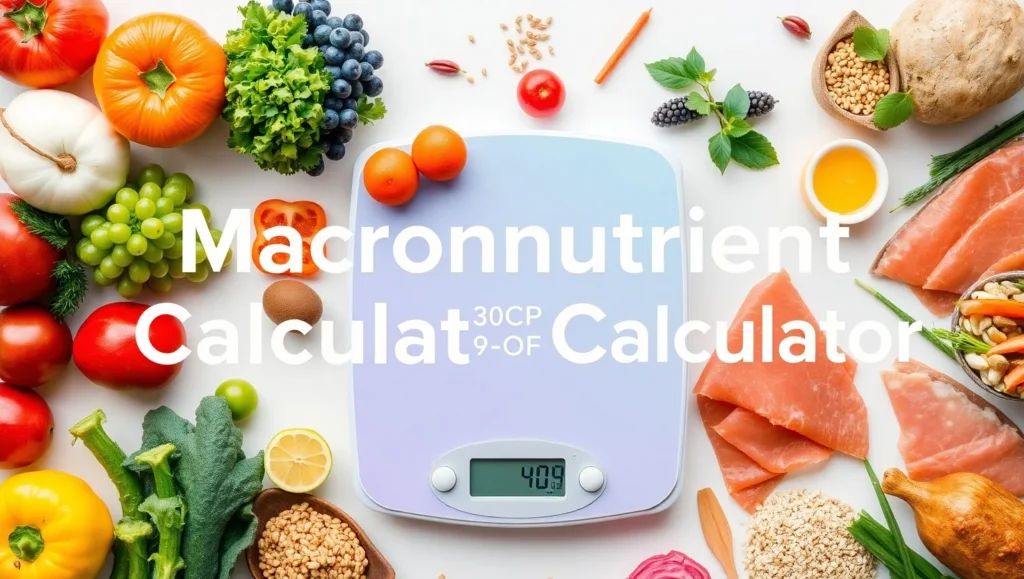Macronutrient Calculator
Calculate your optimal daily protein, carbohydrate, and fat intake based on your personal stats, goals, and preferred diet approach.
Dietary Approaches Explained
Standard (Balanced Diet)
50% Carbs, 20% Protein, 30% Fat.
Emphasizes a variety of whole foods. Good for most people seeking stable energy and health.
Low-Carb
25% Carbs, 30% Protein, 45% Fat.
Reduces carbs to stimulate fat metabolism, may aid in weight loss and some metabolic conditions.
Ketogenic
5% Carbs, 20% Protein, 75% Fat.
Puts body into ketosis for rapid fat burning; focus on very low-carb veggies, healthy fats, moderate protein.
Athlete/Performance
55% Carbs, 25% Protein, 20% Fat.
Higher carbohydrates support training, competition, and recovery for active individuals.
Macronutrients: What They Do & Best Sources
Protein
Helps build and maintain muscles, organs, skin. Supports immune system and hormone production.
- Chicken, turkey, lean beef, fish, tofu, eggs
- Greek yogurt, cottage cheese, legumes, seitan
Carbohydrates
Primary energy source (especially for brain & muscles). Aids gut health when fiber-rich foods are chosen.
- Whole grains, brown rice, oats, quinoa
- Fruits, vegetables, beans, lentils
Fats
Supports cell health, hormone balance, nutrient absorption, and provides long-term energy reserves.
- Avocado, olive oil, fatty fish (salmon, sardines)
- Nuts, seeds, nut butters, coconut, dark chocolate
FAQs & Tips
- Customize your macros: Adjust meal frequency and dietary approach to suit your schedule and taste preferences.
- Protein for fat loss: Higher protein helps preserve lean mass on a calorie deficit.
- Carbs for performance: Don’t fear healthy carbs if you’re very active or an athlete!
- Healthy fats: Prioritize unsaturated fats for heart & metabolic health.
- Consistency is key: Balanced meals and habits matter more than daily fluctuations.
- See a registered dietitian or sports nutritionist for highly personalized nutrition advice.
Macronutrient Calculator – Find the Right Balance of Protein, Carbs & Fats
Struggling to hit your fitness or weight goals despite counting calories? The problem might not be how much you’re eating—but what you’re eating. Our Macronutrient Calculator helps you determine the ideal ratio of protein, carbohydrates, and fats tailored to your lifestyle and goals—whether you’re trying to lose weight, gain muscle, or simply eat healthier.
It’s the ultimate tool for anyone who wants to fuel smarter, not harder.
🔍 What Is a Macronutrient Calculator?
A Macronutrient Calculator is a health and nutrition tool that calculates your daily recommended intake of:
- 💪 Protein – for muscle repair and maintenance
- 🍞 Carbohydrates – your body’s main energy source
- 🥑 Fats – vital for hormone production and brain health
It’s more than a calorie counter—it gives you the full macro breakdown in grams and percentages based on your:
- 🔢 Age, gender, weight, height
- 🏋️ Activity level
- 🎯 Fitness goal (weight loss, gain, or maintenance)
📈 Why Track Macros Instead of Just Calories?
Calories matter—but macros define body composition. Two diets with the same number of calories can have drastically different outcomes depending on their macronutrient distribution.
For example:
- High-protein diets preserve muscle while losing fat
- Low-carb diets help with faster weight loss
- Balanced macros improve energy and satiety
🧠 Example: Active Female, 150 lbs, Goal – Fat Loss
- Daily Calorie Target: 1,800 kcal
- Goal Split: 40% Protein / 30% Carbs / 30% Fat
Macro Breakdown:
| Macro | % of Calories | Grams per Day |
|---|---|---|
| Protein | 40% (720 kcal) | 180g |
| Carbs | 30% (540 kcal) | 135g |
| Fats | 30% (540 kcal) | 60g |
Use our Macronutrient Calculator to get these results instantly and start eating in alignment with your body goals.
🛠️ Features of Our Macronutrient Calculator
- ⚖️ Personalized by weight, activity & fitness goals
- 🧮 Calculates grams + % of protein, carbs, fats
- 📱 Mobile-friendly, fast, and ad-free
- 🥗 Suggests food sources for each macro
- 📊 Export or print meal planning guides
🔥 Features Included
- Macronutrient calculator
- Protein carb fat calculator
- How to calculate macros
- Macro calculator for weight loss
- Keto macro breakdown
- Bodybuilding macro calculator
- Macro nutrient percentage by goal
- Calorie and macro tracker
📊 Macronutrient Recommendations Based on Goals
| Goal | Protein | Carbs | Fat |
|---|---|---|---|
| Weight Loss | 40% | 30% | 30% |
| Muscle Gain | 30% | 45% | 25% |
| Maintenance | 30% | 40% | 30% |
| Keto Diet | 20% | 5% | 75% |
You can adjust these percentages within the calculator for flexible, personalized planning.
🍽️ Best Food Sources by Macro
| Macro | Best Foods |
|---|---|
| Protein | Chicken, tofu, lentils, eggs, Greek yogurt, fish |
| Carbs | Brown rice, oats, fruits, sweet potato, whole grains |
| Fats | Avocados, olive oil, nuts, chia seeds, flaxseed |
Balance is key. Not all macros are created equal—choose whole, nutrient-dense foods whenever possible.
👥 Who Should Use a Macronutrient Calculator?
- 🏃 Fitness beginners or enthusiasts
- 🏋️ Bodybuilders and athletes
- 🥦 Vegans and vegetarians
- 🧘 Individuals on keto or paleo
- 🧑⚕️ People managing diabetes or PCOS
- 📊 Anyone focused on long-term healthy eating
🧭 Related Internal Tool You’ll Love
Want to calculate your daily calorie needs before dividing your macros? Try our Calorie Calculator to set the perfect base.
🔗 Trusted External Resources
- Harvard Health – Macronutrients Explained
- NIH – Dietary Reference Intakes
- USDA MyPlate – Macronutrient Tips

✅ Final Thoughts
Whether you’re meal prepping for fat loss, training for a marathon, or just trying to eat cleaner, the Macronutrient Calculator makes it easier to hit your goals with precision. It gives you real numbers, not guesses, and helps turn your diet into a data-driven path to better health.

1 thought on “Macronutrient Calculator”